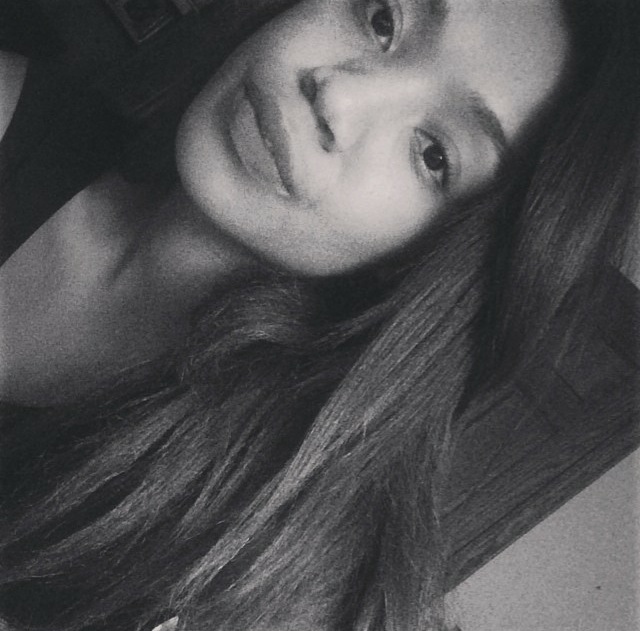Why These Women's Photos Are Constantly Getting Censored on Instagram

By:
In a world where selfies are king and women work hard to hide their imperfections, a group of female artists on Instagram are challenging femininity and female body perceptions by unapologetically revealing the good, the bad and "ugly" of a woman's body.
For most women it would be quite a taboo to post a picture of yourself with traces of body hair on your upper lip and an unshaven armpit. And it would be absolutely unthinkable to share a picture of body fluids or your period stained clothes on Instagram. The idea seems repulsive and unattractive, but that's the mentality that these women are trying to address.
Related: Why Armpits Remain A Feminist Battleground
Outside of carefully crafted images of women in the media, women don't have a lot of images that teach them to feel comfortable about their bodies as they naturally are. But the work of these few female artists hope to change that.
Artist and feminist Molly Soda posts dozens of pictures of herself like these with hair under her arms and on her stomach.
In an panel discussion for Dazed Soda explained the importance of showing these realistic depictions of women's bodies.
"Being open with your own body allows, invites and encourages others to do the same or to at least feel good about their bodies. It’s a chain reaction of positivity. Of course, a lot of people are going to see that and be rude and negative but I ignore that – I think there are a lot of benefits to sharing your 'reality' – hopefully someone can see my photo and think, 'hey, I have hair on my stomach too' or 'my boobs sort of look like that' and in turn, feel a little less self conscious."
Related: This Hashtag Has a Blunt Message for the Fashion Industry About Body Image
Sweden native and LA-based photographer Arvida Bystrom attracted a lot of fans with her photos exploring female identity and gender norms. She posted these pictures of her menstrual blood, untrimmed bikini line and unshaven armpit on social media. Currently she has more than 100,000 followers on Instagram.
But as much as these artists are loved on social media they face battles with censorship. For example, Instagram deleted a photo by Canadian artist Rupi Kaur after she posted a picture of a woman lying down in bed with menstrual blood stained on her pants.
In response to Instagram's decision to remove her photo, the Telegraph reported that Kaur said this.
"I will not apologize for not feeding the ego and pride of misogynist society that will have my body in an underwear but not be ok with a small leak when your pages are filled with countless photos/accounts where women (so many who are underage) are objectified, pornified, and treated less than human."
Eventually, Instagram reposted the photo, according to the Telegraph. But for others, they're not as lucky. Alexandra Marzella, an artist who uses selfies and performance art, told Dazed that Instagram deleted her account 16 times.
Related: Facebook Reprimands Woman for Promoting Female Hygiene Products
In most of these cases Instagram removed photos they believed violated their community guidelines. However, this censorship can reinforce sexist body images of women. As Kaur earlier pointed out, Instagram allows for overly sexualized photos of women but discourages images that showcase the female body in a natural way. But if images of a woman's natural body and its processes are not deemed appropriate then how can women learn to feel comfortable with their natural bodies?
Earlier this year, Facebook reprimanded female blogger, Alaura Weaver who tried to create a Facebook ad that promoted her blog post on female hygiene products and women's health. As ATTN: previously reported, Facebook ruled that her ad about tampons was promoting sexual products and thus, violated their Adults Products Policy.
Besides the principle of freedom of speech, the issue pointed to society's more global problem of fear and discomfort in discussing women's health issues. The same can be said about Instagram's policing of appropriate images for women to share.
“It sucks to feel like a freak and be grossed out by your own body," Arvida Byström told Dazed. "This makes people sick."
"It doesn’t surprise me," Soda told Dazed. "The female body is constantly policed – why would Instagram be any different? I’ve had photos taken down that didn’t even involve nudity. I had a photo taken down that was a screenshot of a text conversation that had the word 'sex' in it. There is a great fear that surrounds the female body – a nude photograph immediately becomes pornographic even if that is not the intent. It doesn’t keep me from posting whatever I want though – enough people will see it before it gets taken down."
